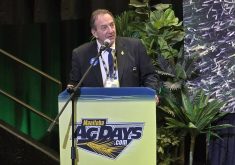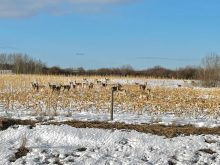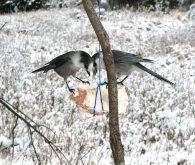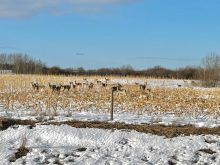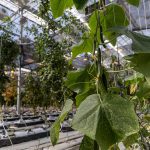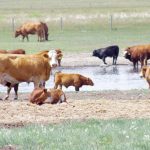Wild pigs are spreading rapidly across the Prairies, posing serious risks to agriculture, native ecosystems, and livestock, according to University of Saskatchewan professor Ryan Brook.
Speaking at Manitoba Potato Production Days, which ran Jan. 28 to 30 at the Keystone Centre in Brandon, Brook said wild pig populations are growing at an alarming rate and are now well-established in parts of Manitoba, Saskatchewan, and Alberta.
“Wild pigs are expanding completely out of control in the Canadian Prairies right now,” Brook said.
Read Also

Manitoba sunflower plant gets local owners
Scoular’s sunflower and bird feed plant in Winkler, Man., bought by Orenda Commodity Services Ltd. out of Ste. Agathe.
Why it matters: Wild pigs are rapidly spreading across the Prairies, posing growing risks to agriculture, ecosystems, and livestock.
Brook and his research team track wild pigs using trail cameras, GPS collars, and field studies. The animals, which are descendants of escaped domestic pigs and wild boar hybrids, were originally introduced in the 1980s as part an agriculture diversification effort. Some were raised for meat, while others were kept for high-priced hunting operations.

The market peaked in 2000 with around 32,000 animals on approximately 500 farms. That all changed very quickly, Brook said. In the years that followed, nobody wanted to buy the pigs anymore, and some were even set free from farms to deal with the problem.
“Some experts at the time said…these things will never survive in the Manitoba winter,” Brook said. “Well, they come from Siberia. That’s one clue…and they’re really big, and being big is a big factor for surviving in the cold. And they’re covered with thick fur. And so these things have survived in the cold really, really well.”
Wild pigs have a nearly unmatched ability to reproduce, making them extremely difficult to control. Wild pigs also cause significant damage to farmland by rooting through fields and consuming crops, including potatoes. They also pose a risk to livestock.
“They will eat potatoes,” Brook said. “Because pigs are rooters, and they’re purposely digging for things, they’re going to be a natural predator on potatoes, unfortunately. We’ve definitely heard from some producers that that’s an issue.”
Wild pigs are also a disease risk and can negatively impact cattle operations.
“A school bus driver in Saskatchewan stopped and videotaped a great big male wild pig chasing after some cattle. Are they going to kill those cattle? No, probably not, but those animals didn’t go back to feed for six to seven days,” Brook said.
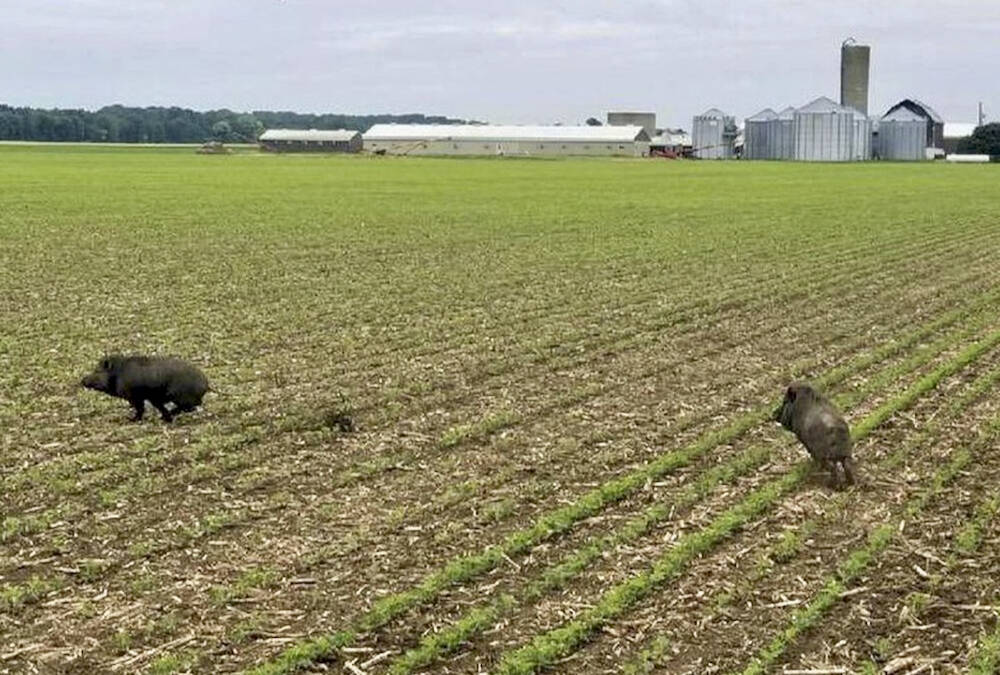
Manitoba’s Squeal on Pigs campaign was launched in May of 2022, a partnership between the provincial and federal governments and Manitoba’s agricultural sector. The program spreads awareness about Manitoba’s wild pig problem, and sightings of wild pigs can be reported to the program’s hotline.
In addition, the Manitoba Invasive Swine Eradication Project was announced in January of 2022 with collaboration from the provincial and federal governments and Manitoba Pork. The project is funded through the Canadian Agricultural Partnership.
The Squeal on Pigs website states that wild pigs can contaminate water with E. coli and other bacteria; damage natural habitats and displace wildlife while negatively impacting biodiversity; can carry up to 89 diseases; can uproot and trample crops; and reproduce quickly, with female wild pigs birthing four to 12 piglets twice a year.
The Squeal on Pigs website states that conventional hunting is not the solution to the province’s problem with wild pigs, since hunting causes the pigs to disperse and change their movement patterns. Instead, the program focuses on surveillance and corral trapping, capturing pigs in groups to try to eliminate further population dispersion.
Brook agrees that Manitoba’s open hunting season on wild pigs makes the problem worse.
“It breaks up groups, spreads them around the landscape,” he said, adding that hunter success with wild pigs is only at around two per cent. “Manitoba again, not sure why, but they’ve chosen open season.”
Brook advocates for large-scale trapping programs, which have been more effective in other jurisdictions. His team has also experimented with using “Judas pigs,” where a captured pig is fitted with a GPS collar and released to lead researchers to other pigs.
Brook also criticized the lack of provincial and federal government action on wild pig management in Canada, saying most of the funding for his research comes from the United States Department of Agriculture.
“Politically, it’s been a shit show,” he said. “My most honest answer is that there is a lot of space to include the science of what we do and what happens next. We’ve developed models to predict where they’re going to go. We have maps showing where they are. We’ve done studies looking at reproductive rates. We’ve published papers showing the ecology of these things. Interest in any of that has been, I won’t say zero, but pretty nearly zero.”
While Alberta has been more proactive in tackling the wild pig problem than Manitoba, overall, efforts to manage wild pigs in Canada have been inadequate, Brook believes.
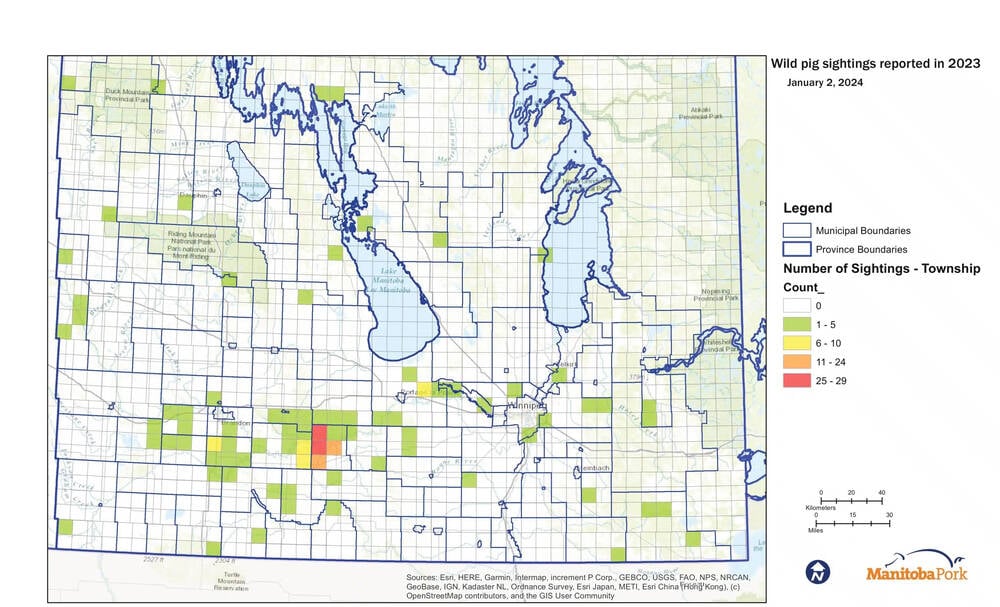
Wild pigs are now a permanent part of Canada’s landscape, Brook said, and while complete eradication is unlikely, stronger management is necessary.
“My great grandkids are going to see wild pigs (on) the Canadian Prairies, but that doesn’t mean we should give up,” he said. “There’s still a lot that can be done.”
If Manitoba chooses to be serious about its wild pig problem, open season hunting will end Brooks said, and the province will put in place techniques other than just trapping.
A representative from the province told the Co-operator in an e-mail that Manitoba is collaborating with the Prairie Agricultural Machinery Institute (PAMI) to continue its efforts to stop the spread of wild pigs.
“The province of Manitoba is engaged in research with the PAMI on developing tools for Squeal on Pigs field staff to remove harvested carcasses from densely treed and/or rough and uneven terrain in a workplace safe manner but also in a manner that is bio-secure to prevent potential transmission of disease,” said Caedmon Molawany, a cabinet press secretary with the Manitoba Government.
The province is also currently reviewing potential policy changes that would strengthen control over invasive swine in Manitoba, he added.







